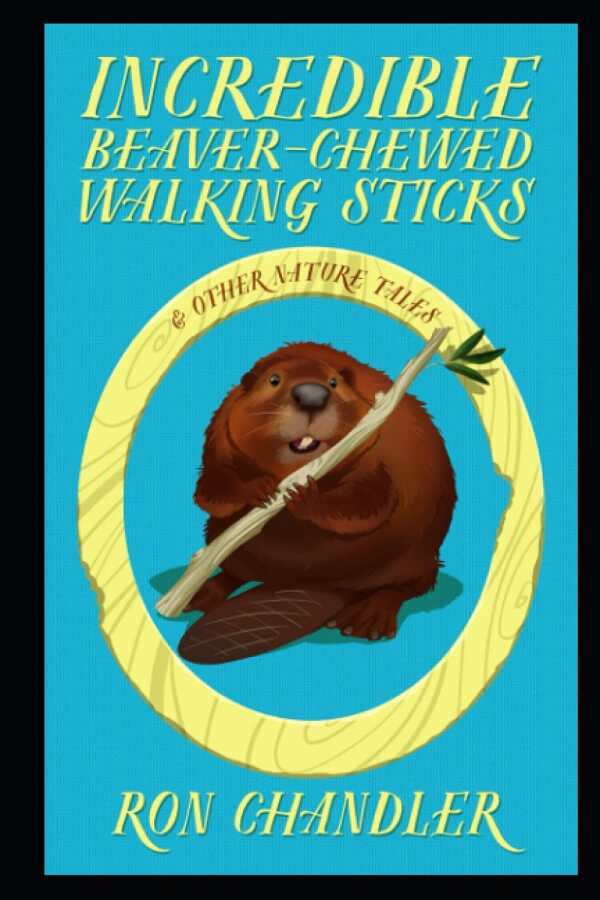
Incredible Beaver
Chewed Walking Sticks & Other Nature Tales
In the short stories of Incredible Beaver, human beings are a part of the natural world, and their actions are seen to impact it.
Ron Chandler’s varied short story collection Incredible Beaver emphasizes the close connection between people and the natural world.
With knowledge that the relationship between humans and nature isn’t always symbiotic, some of these stories explore the negative impact that human actions can have on the world around them. One such story, “A Simple Twist of Fate,” extrapolates on the unintended, and unpleasant, consequences of discarding a single plastic bottle in the woods. Another, “Going to the Dogs,” chronicles a camping trip in Shenandoah National Park, during which careless teenagers fail to control their pets on an excursion. Such tales tend toward moralizing, eschewing details like characterization; many feature unnamed characters incapable of evoking audience emotions.
But other stories have lessons that evolve in more organic ways. These tend to feature children with empathetic, real-world problems, as with those who fear disappointing their parents or losing a precious pet. In “Dolly Rae,” a child competes in an equestrian competition to save the life of their favorite horse; in “Geese Feathers,” a child faces a dilemma after a botched bird-hunting opportunity. These standalone tales have solid story lines; their robust issues are resolved in a few pages.
A few stories, including “Incredible Beaver,” have subtle senses of irony and humor, utilizing shifting points of view, keen word choices, and complex descriptive phrases—some perhaps out of the reach of the target audience, as when, in “Dolly Rae,” the girl and her horse are described as “11 years old, one a bit past her prime and the other years from it.” Another story’s narration alternates between a suburban homeowner and a backyard squirrel; it may be suitable for family read alouds, as it is sophisticated enough to hold adult interest.
The collection as a whole is marked by an active writing style, with strong verbs that keep the stories moving forward. In the tales that include it, the dialogue is direct, believable, and age-appropriate. The adults don’t talk down to the children in their lives, and the conversations between children are well measured.
In the short stories of Incredible Beaver, human beings are a part of the natural world; their actions are seen to impact the world around them, whether they’re in national parks or in their own backyards.
Reviewed by
Charlene Oldham
Disclosure: This article is not an endorsement, but a review. The publisher of this book provided free copies of the book and paid a small fee to have their book reviewed by a professional reviewer. Foreword Reviews and Clarion Reviews make no guarantee that the publisher will receive a positive review. Foreword Magazine, Inc. is disclosing this in accordance with the Federal Trade Commission’s 16 CFR, Part 255.
